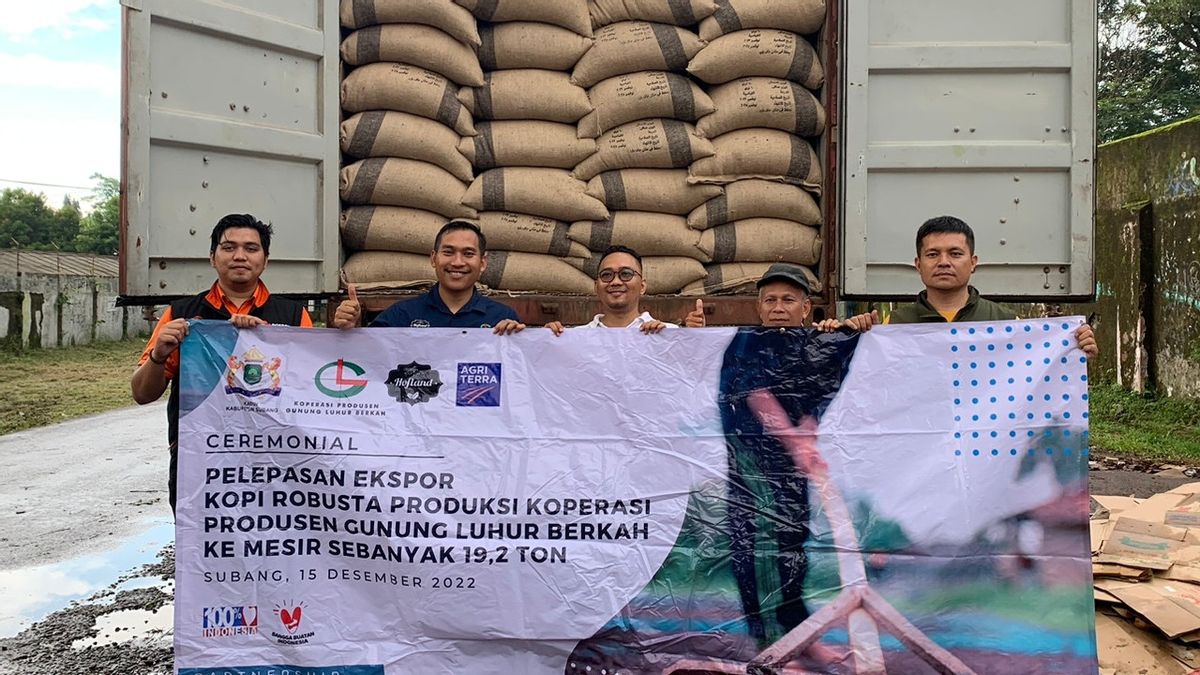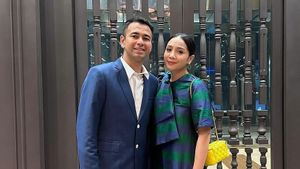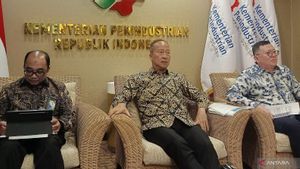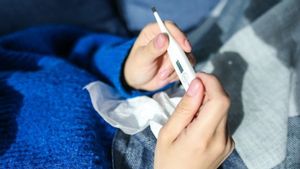JAKARTA - The Foreign Exchange Village Program of the Indonesian Export Financing Agency (LPEI)/ Indonesia Eximbank has again recorded success. Subang Coffee Foreign Exchange Village through the Gunung Luhur Berkah Producer Cooperative successfully released the export of superior Robusta coffee with a volume of 19.2 tons to Egypt some time ago, Thursday 15 December.
Head of the LPEI Consulting Services Division, Gerald Grisanto, said that this export was the second time that the Gunung Luhur Berkah Producers Cooperative had carried out. He added, since the assistance and training that LPEI has provided to Subang coffee farmers, the number of village incomes has increased by 60 percent from before.
"LPEI as the Special Mission Vehicle of the Ministry of Finance of the Republic of Indonesia continues to widen the export potential of regional superior commodities through the Foreign Exchange Village program. Through this program, we are committed to realizing a sustainable export ecosystem to create certainty of crops for farmers," said Gerald in his statement, Saturday, December 31.
It is hoped that, continued Gerald, that the Foreign Exchange Village program can improve the welfare of villagers and strengthen the quality and quantity and competitiveness of commodities that are in accordance with export standards so that they can continue to exist at the global level.
In addition to robusta coffee, this Foreign Exchange Village has other superior commodities, namely Arabica coffee which has also been successfully exported as much as 18 tons to Saudi Arabia in 2021. The coffee commodity is cultivated by 208 farmers under the auspices of the Gunung Luhur Berkah Producer Cooperative spread across 6 villages, namely Cisalak, Nagrak, Cupunagara, Darmaga, Sukakerti, and Pasanggrahan.
Gerald continued, the Foreign Exchange Village program has been adjusted to the needs of Subang coffee farmers and cooperatives in managing production and running their business.
"The support of the Subang Coffee Foreign Exchange Village is focused on three aspects, namely market access, production capacity, and financial recording. The training we provide is expected to expand access to the export market, improve cultivation and processing capabilities of coffee plants, and improve the procedures for compiling financial reports," explained Gerald.
In the future, LPEI will continue to take concrete steps in creating export ecosystems that are formed from villages in various regions in Indonesia that are able to consistently contribute to increasing the country's foreign exchange. One of these is realized by providing opportunities for regions that have superior export-oriented products to develop economic, social and environmental potential for the welfare of their people.
"As a form of support to encourage national exports, LPEI always strives optimally in providing sustainable assistance through the Foreign Exchange Village program in areas with export potential commodities. We hope that the Coffee Foreign Exchange Village in Subang can carry out further exports immediately," concluded Gerald.
The English, Chinese, Japanese, Arabic, and French versions are automatically generated by the AI. So there may still be inaccuracies in translating, please always see Indonesian as our main language. (system supported by DigitalSiber.id)













